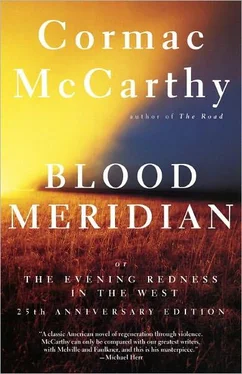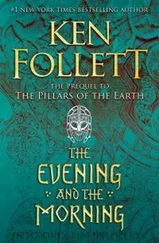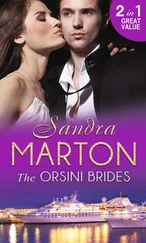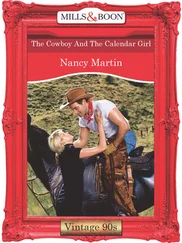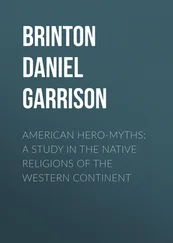The men at the bar watched.
The barman looked at the kid.
Quiere trabajo, said the old man. Quién sabe. He turned back to his pieces and made his play without further consultation.
Quieres trabajar, said one of the men at the bar.
They began to laugh.
What are you laughing at? said the boy.
They stopped. Some looked at him, some pursed their mouths or shrugged. The boy turned to the bartender. You got something I could do for a couple of drinks I know damn good and well.
One of the men at the bar said something in Spanish. The boy glared at them. They winked one to the other, they took up their glasses.
He turned to the barman again. His eyes were dark and narrow. Sweep the floor, he said.
The barman blinked.
The kid stepped back and made sweeping motions, a pantomime that bent the drinkers in silent mirth. Sweep, he said, pointing at the floor.
No está sucio, said the barman.
He swept again. Sweep, goddamnit, he said.
The barman shrugged. He went to the end of the bar and got a broom and brought it back. The boy took it and went on to the back of the room.
A great hall of a place. He swept in the corners where potted trees stood silent in the dark. He swept around the spittoons and he swept around the players at the table and he swept around the dog. He swept along the front of the bar and when he reached the place where the drinkers stood he straightened up and leaned on the broom and looked at them. They conferred silently among themselves and at last one took his glass from the bar and stepped away. The others followed. The kid swept past them to the door.
The dancers had gone, the music. Across the street sat a man on a bench dimly lit in the doorlight from the cafe. The mule stood where he’d tied it. He tapped the broom on the steps and came back in and took the broom to the corner where the barman had gotten it. Then he came to the bar and stood.
The barman ignored him.
The kid rapped with his knuckles.
The barman turned and put one hand on his hip and pursed his lips.
How about that drink now, said the kid.
The barman stood.
The kid made the drinking motions that the old man had made and the barman flapped his towel idly at him.
Andale, he said. He made a shooing motion with the back of his hand.
The kid’s face clouded. You son of a bitch, he said. He started down the bar. The barman’s expression did not change. He brought up from under the bar an oldfashioned military pistol with a flint lock and shoved back the cock with the heel of his hand. A great wooden clicking in the silence. A clicking of glasses all down the bar. Then the scuffling of chairs pushed back by the players at the wall.
The kid froze. Old man, he said.
The old man didnt answer. There was no sound in the cafe. The kid turned to find him with his eyes.
Está borracho, said the old man.
The boy watched the barman’s eyes.
The barman waved the pistol toward the door.
The old man spoke to the room in Spanish. Then he spoke to the barman. Then he put on his hat and went out.
The barman’s face drained. When he came around the end of the bar he had laid down the pistol and he was carrying a bung-starter in one hand.
The kid backed to the center of the room and the barman labored over the floor toward him like a man on his way to some chore. He swung twice at the kid and the kid stepped twice to the right. Then he stepped backward. The barman froze. The kid boosted himself lightly over the bar and picked up the pistol. No one moved. He raked the frizzen open against the bartop and dumped the priming out and laid the pistol down again. Then he selected a pair of full bottles from the shelves behind him and came around the end of the bar with one in each hand.
The barman stood in the center of the room. He was breathing heavily and he turned, following the kid’s movements. When the kid approached him he raised the bung-starter. The kid crouched lightly with the bottles and feinted and then broke the right one over the man’s head. Blood and liquor sprayed and the man’s knees buckled and his eyes rolled. The kid had already let go the bottleneck and he pitched the second bottle into his right hand in a roadagent’s pass before it even reached the floor and he backhanded the second bottle across the barman’s skull and crammed the jagged remnant into his eye as he went down.
The kid looked around the room. Some of those men wore pistols in their belts but none moved. The kid vaulted the bar and took another bottle and tucked it under his arm and walked out the door. The dog was gone. The man on the bench was gone too. He untied the mule and led it across the square.
* * *
He woke in the nave of a ruinous church, blinking up at the vaulted ceiling and the tall swagged walls with their faded frescos. The floor of the church was deep in dried guano and the droppings of cattle and sheep. Pigeons flapped through the piers of dusty light and three buzzards hobbled about on the picked bone carcass of some animal dead in the chancel.
His head was in torment and his tongue swollen with thirst. He sat up and looked around him. He’d put the bottle under his saddle and he found it and held it up and shook it and drew the cork and drank. He sat with his eyes closed, the sweat beaded on his forehead. Then he opened his eyes and drank again. The buzzards stepped down one by one and trotted off into the sacristy. After a while he rose and went out to look for the mule.
It was nowhere in sight. The mission occupied eight or ten ares of enclosed land, a barren purlieu that held a few goats and burros. In the mud walls of the enclosure were cribs inhabited by families of squatters and a few cookfires smoked thinly in the sun. He walked around the side of the church and entered the sacristy. Buzzards shuffled off through the chaff and plaster like enormous yardfowl. The domed vaults overhead were clotted with a dark furred mass that shifted and breathed and chittered. In the room was a wooden table with a few clay pots and along the back wall lay the remains of several bodies, one a child. He went on through the sacristy into the church again and got his saddle. He drank the rest of the bottle and he put the saddle on his shoulder and went out.
The facade of the building bore an array of saints in their niches and they had been shot up by American troops trying their rifles, the figures shorn of ears and noses and darkly mottled with leadmarks oxidized upon the stone. The huge carved and paneled doors hung awap on their hinges and a carved stone Virgin held in her arms a headless child. He stood blinking in the noon heat. Then he saw the mule’s tracks. They were just the palest disturbance of the dust and they came out of the door of the church and crossed the lot to the gate in the east wall. He hiked the saddle higher onto his shoulder and set out after them.
A dog in the shade of the portal rose and lurched sullenly out into the sun until he had passed and then lurched back. He took the road down the hill toward the river, a ragged figure enough. He entered a deep wood of pecan and oak and the road took a rise and he could see the river below him. Blacks were washing a carriage in the ford and he went down the hill and stood at the edge of the water and after a while he called out to them.
They were sopping water over the black lacquerwork and one of them raised up and turned to look at him. The horses stood to their knees in the current.
What? called the black.
Have you seen a mule.
Mule?
I lost a mule. I think he come this way.
The black wiped his face with the back of his arm. Somethin come down the road about a hour back. I think it went down the river yonder. It might of been a mule. It didnt have no tail nor no hair to speak of but it did have long ears.
Читать дальше
